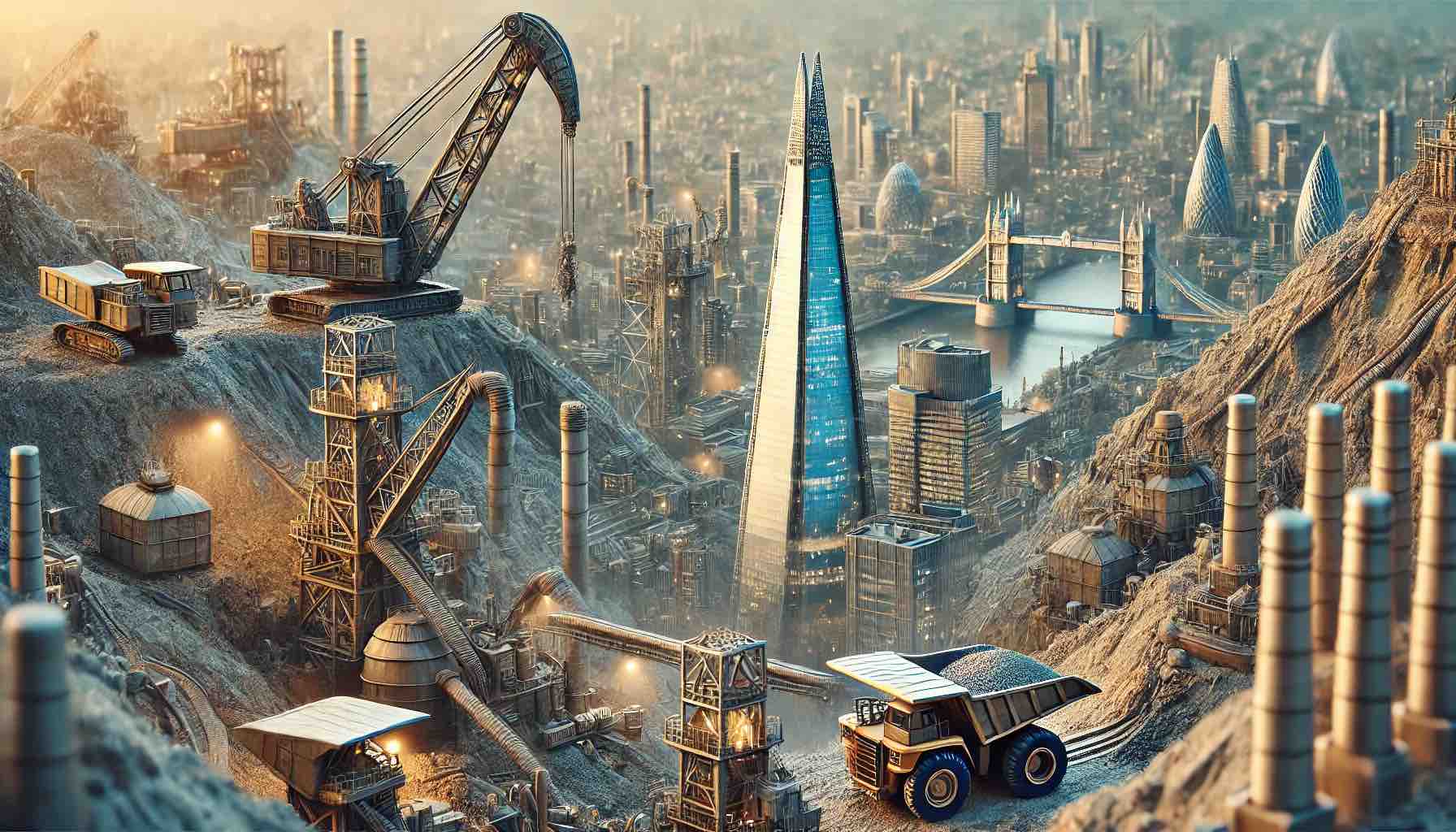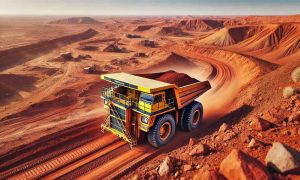

Introduction
The demand for critical minerals has skyrocketed as the world shifts towards renewable energy sources and cleaner technologies. Critical minerals—lithium, cobalt, nickel, and rare earth elements—are essential components in electric vehicles (EVs), battery storage, and renewable infrastructure. According to the International Energy Agency (IEA), the demand for these minerals could multiply four to six times by 2040 if the world pursues its climate goals. This article explores the essential role of critical minerals, examines prominent companies across different regions, and evaluates the challenges of sustainable and ethical sourcing.
1. What Are Critical Minerals and Why Are They Essential for Energy Transition?
Critical minerals serve as the backbone of many energy-efficient technologies required for the green transition. Lithium, cobalt, nickel, and rare earth elements power battery storage, electric motors, and renewable infrastructure, making them indispensable to achieving net-zero targets.
- Lithium: Central to lithium-ion batteries used in EVs and energy storage. Companies like Albemarle (Albemarle Corporation) are expanding lithium extraction to meet growing needs.
- Cobalt: Enhances battery stability, essential in high-performance EV batteries.
- Nickel: Improves battery density, crucial for longer battery life and storage efficiency.
- Rare Earth Elements: Power magnets in EV motors and wind turbines, essential in producing efficient renewable energy.
According to the IEA, if the world achieves its net-zero emissions goals by 2050, the demand for lithium alone is expected to increase over 40 times its current levels. This soaring demand highlights the urgency of developing sustainable, secure supplies of these minerals (IEA).
2. North America: Driving Lithium Production and Electric Vehicle Innovation
The United States aims to secure a domestic supply of critical minerals to reduce dependency on foreign imports. Government initiatives such as the Department of Energy’s Critical Minerals Strategy emphasize securing lithium, cobalt, and nickel.
Company Focus: Albemarle Corporation
Headquartered in North Carolina, Albemarle Corporation is a major lithium producer with projects in Nevada’s Clayton Valley. Albemarle supplies lithium to battery manufacturers and EV companies, playing a key role in the U.S.’s drive for lithium independence. To address sustainability, Albemarle is investing in recycling and reprocessing to minimize the environmental impact of lithium extraction (Albemarle Corporation).
Policy Support and Investments
The Infrastructure Investment and Jobs Act allocates $6 billion to developing domestic critical minerals projects, underscoring the strategic importance of these resources for national security. Other companies, like Piedmont Lithium and Lithium Americas Corp., are also establishing operations in the U.S. to support the EV and renewable sectors (DOE).
3. Europe’s Transition to Green Energy and the Role of Rare Earth Elements
Europe’s Green Deal aims for net-zero emissions by 2050, necessitating a stable supply of critical minerals. The European Union has invested in building domestic mining and recycling facilities to secure its energy transition.
Company Focus: Umicore
Belgium-based Umicore is an industry leader in battery material production and recycling. Umicore collaborates with automakers and renewable energy companies to recover and recycle rare earth elements, creating a circular economy. This focus on sustainability aligns with the EU’s mission of reducing dependence on imported materials (Umicore).
European Union Policies and Green Deal Goals
Europe’s Action Plan on Critical Raw Materials emphasizes rare earth elements and battery metals, with funding allocated to support mining and recycling infrastructure. The EU’s European Raw Materials Alliance (ERMA) encourages sustainable sourcing and supply chain diversification (European Commission).
4. China: A Global Leader in Rare Earth Production and Strategic Dominance
China controls over 70% of global rare earth production, a dominance that grants significant leverage over global clean energy supply chains. China’s rare earth policies impact prices and availability worldwide, driving other nations to explore alternative sources.
Company Focus: China Northern Rare Earth Group
As China’s largest rare earth producer, China Northern Rare Earth Group supplies rare earth elements crucial for EV motors and renewable energy infrastructure. With its Inner Mongolia mining operations, the company meets the needs of both domestic and international industries (China Northern Rare Earth Group).
Strategic and Trade Policies
China’s rare earth export policies highlight the criticality of mineral diversification. Recent restrictions on exports underscore the need for supply chain resilience, prompting regions like the U.S. and EU to invest in domestic production or secure alternative sources (Reuters).
5. Australia’s Role as a Leading Producer of Lithium and Cobalt
Australia is a global hub for lithium and cobalt production, supported by government initiatives that position the country as a reliable source of critical minerals. This stability is vital for supplying lithium to the Asian and North American markets.
Company Focus: Pilbara Minerals
Australia-based Pilbara Minerals operates the Pilgangoora Project, which produces high-grade lithium. The project supplies battery-grade lithium to Asian manufacturers and is crucial to the global supply chain for EVs and storage batteries. Pilbara’s approach emphasizes sustainable mining practices to reduce environmental impact (Pilbara Minerals).
Government Initiatives
The Australian Critical Minerals Strategy supports investment in lithium, cobalt, and nickel production. Australia’s extensive reserves and favorable regulatory environment make it a pivotal player in the global critical minerals supply chain (Australian Government Department of Industry).
6. Africa’s Cobalt Industry and Ethical Sourcing Challenges
The Democratic Republic of Congo (DRC) is the world’s primary source of cobalt, producing over 70% of global supply. However, ethical and environmental issues in DRC’s mining sector pose challenges for companies reliant on this resource.
Company Focus: Glencore
Switzerland-based Glencore operates extensive cobalt mines in the DRC, contributing to the global supply of battery metals. While Glencore’s operations are essential to meeting demand, it has faced scrutiny over ethical sourcing. The company has partnered with the Fair Cobalt Alliance to improve labor practices and transparency (Glencore).
Ethical Sourcing and Sustainability
The Fair Cobalt Alliance works with companies to ensure ethically sourced cobalt, addressing issues like child labor and environmental damage. For European and North American manufacturers, sourcing conflict-free cobalt is increasingly important (Fair Cobalt Alliance).
7. India’s Expanding Role in Critical Minerals Processing and Demand
India’s growing EV and renewable energy markets drive a heightened demand for lithium, cobalt, and other critical minerals. The government has partnered with other nations to secure a reliable mineral supply.
Company Focus: Hindustan Zinc
Hindustan Zinc has announced plans to diversify its mining operations into critical minerals, supporting India’s domestic manufacturing of EV batteries. This diversification aligns with India’s ambitious EV adoption goals and strengthens the country’s supply chain (Hindustan Zinc).
Government Partnerships and Policies
India’s National Mineral Policy promotes sustainable development and has forged partnerships with countries like Australia to access key minerals. This collaboration ensures India can meet its expanding demand for battery materials (Ministry of Mines, India).
8. Latin America’s Rich Lithium Reserves and Global Supply Chains
The “Lithium Triangle” in Latin America—Chile, Argentina, and Bolivia—holds a significant portion of global lithium reserves. This region’s importance in the EV supply chain continues to grow.
Company Focus: Sociedad Química y Minera (SQM)
Chile’s SQM is one of the world’s largest lithium producers, operating in the Salar de Atacama. SQM collaborates with global EV manufacturers to supply high-grade lithium, which is essential for battery production. The company faces environmental challenges, including water scarcity, and is investing in sustainable extraction methods (SQM).
Environmental and Social Considerations
Water-intensive extraction methods in arid areas create environmental concerns. SQM and other companies are working on less impactful techniques to balance extraction with local needs, reducing the impact on ecosystems (World Bank).
9. Recycling and Circular Economy for Critical Minerals
With demand rising, recycling is a vital aspect of the supply chain, reducing reliance on mining and contributing to sustainability.
Company Focus: Redwood Materials
Founded by former Tesla CTO JB Straubel, Redwood Materials is a leader in lithium-ion battery recycling. By reclaiming lithium, cobalt, and nickel from used batteries, Redwood helps create a sustainable supply of critical minerals for the EV market (Redwood Materials).
Global Recycling Efforts and Policies
Countries worldwide are investing in recycling infrastructure. The EU’s Circular Economy Action Plan, for instance, mandates recycling efforts to reduce dependency on primary mining sources (European Commission).
Conclusion
As demand for clean energy technologies grows, the rise of critical minerals highlights both opportunities and challenges. Regions worldwide are positioning themselves to secure these resources sustainably and ethically. From North America’s lithium production to Africa’s cobalt industry, the global landscape of critical minerals reflects the importance of collaborative and innovative solutions in supporting the energy transition.
Bibliography
- International Energy Agency (IEA): https://www.iea.org/
- Albemarle Corporation: https://www.albemarle.com/
- European Commission on Critical Raw Materials: https://ec.europa.eu/
- China Northern Rare Earth Group: http://www.cre.net.cn/
- Australian Government Department of Industry, Science, Energy and Resources: https://www.industry.gov.au/
- Glencore: https://www.glencore.com/
- SQM: https://www.sqm.com/
- Redwood Materials: https://www.redwoodmaterials.com/

























